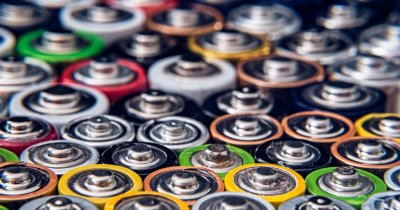As per CNBC, one of Deloitte's recently-published surveys states that 59% of high-income customers make sustainable choices when purchasing a product, but when it comes to mid and low-income customers, the share drops to 44 and 42%, respectively.
Despite the fact that mid and low-income households say that price is an important barrier when it comes to making the sustainable choice, high-income individuals tend to actually have a higher carbon footprint. Even though they tend to buy the more expensive and usually, more efficient products, they also own bigger houses, potentially more personal vehicles and travel by plane more often. This, in turn, translates to a bigger footprint on the planet, say Deloitte officials.
Experts also suggest that sustainable products could also have a "green premium" associated with their price tag, making them not as affordable as the maybe less planet-friendly alternative.
There are some affordable ways to not only reduce your carbon footprint, but potentially making big savings long-term, without needing to spend as much money as you might think.
LED bulbs, a must for any household these days
For example, in Romania, the annual economy you can make by switching to LED light bulbs can be about 224 RON, if you will be using 6 bulbs for five hours per day. So, instead of spending 280 RON on the energy used by incandescence bulbs, you'll only have to spend 56 RON with LEDs, plus you might need to replace old school units more often, which means additional costs.
Food waste is your biggest enemy
Ever wondered why your shopping bill might be that high? It's probably because you spend too much money on food you won't actually use. Food waste is a sad reality that most developed countries face and it brings many disadvantages. First, we waste good food resources that could be consumed by those who actually need it and then, once it reaches landfills, food waste produces methane, which is one of the strongest greenhouse gases out there.

Eat more vegetables, they're good for you and the planet
Meat products tend to have high carbon tags associated with them, since the use of land and resources to grow livestock can make their number on the planet. Not only do we have to use food resources that we could consume ourselves in order to grow cattle, for example, but these animals also release methane, which can warm the planet by about 80 times more when compared to CO2.
Thus, consuming more vegetable or other type of meats, if you really want to, such as chicken or fish, can be a good solution to reduce the need of farmers outputting even more meat-based products on the market.
Unplug electronics when you don't use them
It goes without saying that, even when not in direct use, electronics still use some power, albeit a small amount. Instead, only keep them plugged in while you use them, so for printers, consoles or microwave ovens, you don't have to keep them powered-up all the time.
Of course, as far as your router goes, that should be plugged in pretty much non-stop, since you need constant access to the internet in today's world.

However, while you're away in a vacation, you can unplug all but one electronic device, that being the refrigerator. Modern refrigerators usually have an "Eco" mode, which can be activated to save power when you're away and the door won't be opened for a number of days or weeks.
These are some of the cheapest ways to reduce your carbon footprint and become more sustainable and besides investing in more efficient energy bulb, the rest don't involve any extra cost. What they will do, on the other hand, is save you significant amounts of money overtime and help you not be a burden on the planet.
 Mihai - Cristian Ioniță
Mihai - Cristian Ioniță












Any thoughts?